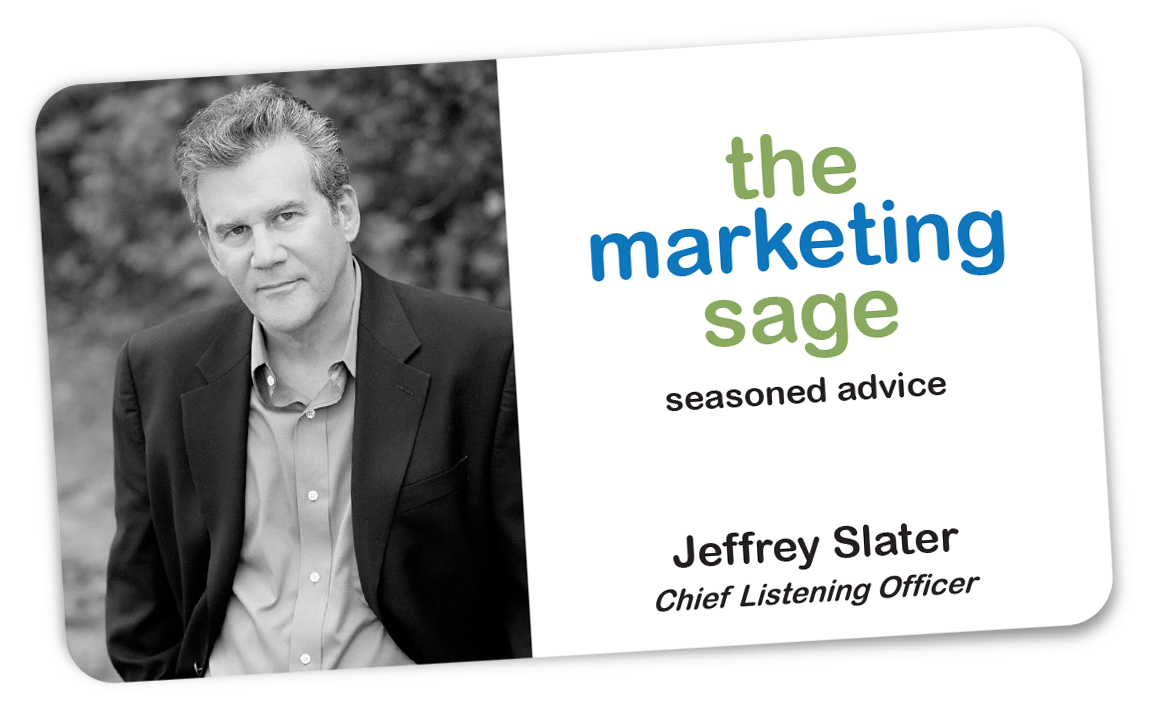In a recent negotiation over fees with a food-industry client, I spent most of my time asking questions and probing for information about budget, authority, and needs. I avoided giving an ultimatum and turned the negotiation into more of an information-gathering conversation. By asking questions instead of making demands, the negotiation allowed for a free and fair exchange to guide how I structured my proposal. I listened carefully and picked up some key details from the discussion that helped me find a winning position for both my client and me.
By starting from a place of empathy, not strength or bravado – we both got almost everything we each needed for success. I got what was most important to me, and they got what mattered to them.
When a friend asked for some advice about negotiating for a job, I knew I needed to write down some suggestions to help her.
Negotiations Begin with Empathy
We deal with negotiations all the time, whether for a raise from our boss or with your family over where to go on vacation. Negotiating isn’t something that happens once in a blue moon but a daily occurrence.
Yesterday I negotiated with several people, and in each situation, I never framed the negotiation as a battle, fight, or argument – instead, I used a different process. When I negotiate over anything – I begin by trying to understand and empathize with the person on the other side. What’s important to them, what authority do they have, and how is this negotiation in any way helpful to their goals?
My negotiations work best when I start by stepping into their shoes. I wanted to know how working together could be successful for them. By framing the discussion from their needs, helped me think about how to make this work for both of us.
How I Think About Negotiation:
My framework for negotiations anchors on these three principles:
- Start with Empathy. When you start as a warrior in a negotiation, it isn’t easy to get the outcome desired. Humans have conflicts in different domains, but fundamentally not solely about money or terms and conditions. Most negotiations are about human interaction. How do we engage with others who see the world differently? Sometimes, the person you are negotiating with doesn’t know how to ask for help and, they may be uncertain how you can help them achieve their goal.
- Know their constraints. The most effective way to negotiate is to think of the other person’s interests first, acknowledge them and recognize their constraints. Those who begin a negotiation by arguing for their self-interest are putting plugs in the other person’s ears. Most people start a negotiation by running through a laundry list of arguments hoping something will stick. I don’t start at that point. I use empathy, understanding, and listening to help me get more information and a clearer picture of how to come to a positive resolution where we both get most of what we need.
- Information is gold. The conversation and planning that happens before a negotiation sets the stage for the actual negotiation. When negotiating with someone, I try to assess if that person will fight for me and what I’m advocating. I try to justify my “ask” in their language – not mine. In recognizing their constraints, it helps me clarify what I want that they can do for me. You can’t negotiate a deal with someone who doesn’t have the authority to make the deal – but they may be your advocate to help you achieve your goal. An example is when you ask your boss for a raise, but they don’t have the authority to give that to you. Perhaps they do have the power to provide you with more vacation time instead. Being clear about what you want is crucial because, frequently, a list of wants can blur your request. Be specific. Be clear about priorities.
Negotiation Advice from an Expert
Prof. Deepak Malhotra from Harvard Business School gave a free guest lecture about negotiating for a job to students in his class. He provided tips for dealing with a prospective employer. Watch the video here.
Also, he recently published a fascinating science fiction book called The Peacemaker’s Code. The book uses his negotiation expertise in a science-fiction story. I haven’t read it yet but it got great reviews from people I admire.
Here is a brief synopsis:
Professor Kilmer, a renowned historian of war and diplomacy, is collected from his home and whisked off to Washington. Thrust into the highest levels of government as an adviser to the President; the young historian must come to terms with the seemingly impossible, figure out how to navigate a world where not everything is as it appears, and use all the skills and knowledge he has acquired in his life to help save humanity from a conflict of genuinely epic proportions.
Malhotra Tips for Job Negotiation
- They need to like you. People don’t want to work with jerks.
- They must believe you deserve it, and they need to want to do it for you.
- They need to be able to justify it, but they may have constraints. Know their constraints.
- It would help if you were flexible on what currency they pay you in (salary vs. vacation versus other benefits). What’s the value of the entire deal.
- They need to believe they can get you or close the deal. They don’t want to be used as a pawn. Don’t negotiate to negotiate. Act in good faith.
- You must understand the person on the other side of the table BEFORE you get there. Information is the most valuable tool in your negotiation toolkit. Learn everything you can about the person you will negotiate with before you talk to them.
- Negotiate multiple issues simultaneously – don’t negotiate salary and then return to bonus or vacation or location. Bundle all the problems together. And be clear on what is the top priority.
- What isn’t negotiable today may be negotiable tomorrow. Don’t be too short-sighted.
- Stay at the table. Don’t negotiate and walk away. That sends the wrong signal. Stay involved.
- Be prepared to answer questions truthfully. It is okay if you don’t have other offers. Be ready to answer the tough questions – what might they ask?
- Figure out why they ask you a specific question – if they ask would you accept an offer if you received it today? What’s the root of that question? It is okay to figure out what their intent is – because the answer can be, help me understand why you ask that question. Ask what they want to know honestly. Sometimes it helps not to ask a question that boxes you in. Target understands the why behind a question they ask.
- Avoid making ultimatums. Be careful how you structure a comment or request. (As we will NEVER do X, or that’s NOT possible). My approach if someone makes an ultimatum, ignore it.
- Assume their good intent – you may not be the only thing on their to-do list. They may be busy and have challenges unrelated to your negotiations.
- Tell the truth. Resist the temptation to tell even a small lie.
- Shoot for an 11 out of 10 on a scale of their interest in working with you in the future. You want to negotiate in such an open and honest way that they look forward to working with you, and they like you more because of how you interacted with them.
- Negotiation isn’t the key to happiness. You were finding work you enjoy in the right company matters. Who are you? What’s important to you, and what you want to do. The first step matters, so are thoughtful in that first job or opportunity you take.
If you disagree with my ideas and framework, we can’t negotiate a compromise. I’ll start with empathy.

Need help negotiating a deal?
I can help.
You can set up a time to chat with me about your marketing challenges using my calendar. Email me jeffslater@themarketingsage.com Call me. 919 720 0995. The conversation is free, and we can explore if working together makes sense. Watch a short video about working with me.
Photo by Charles Deluvio on Unsplash




